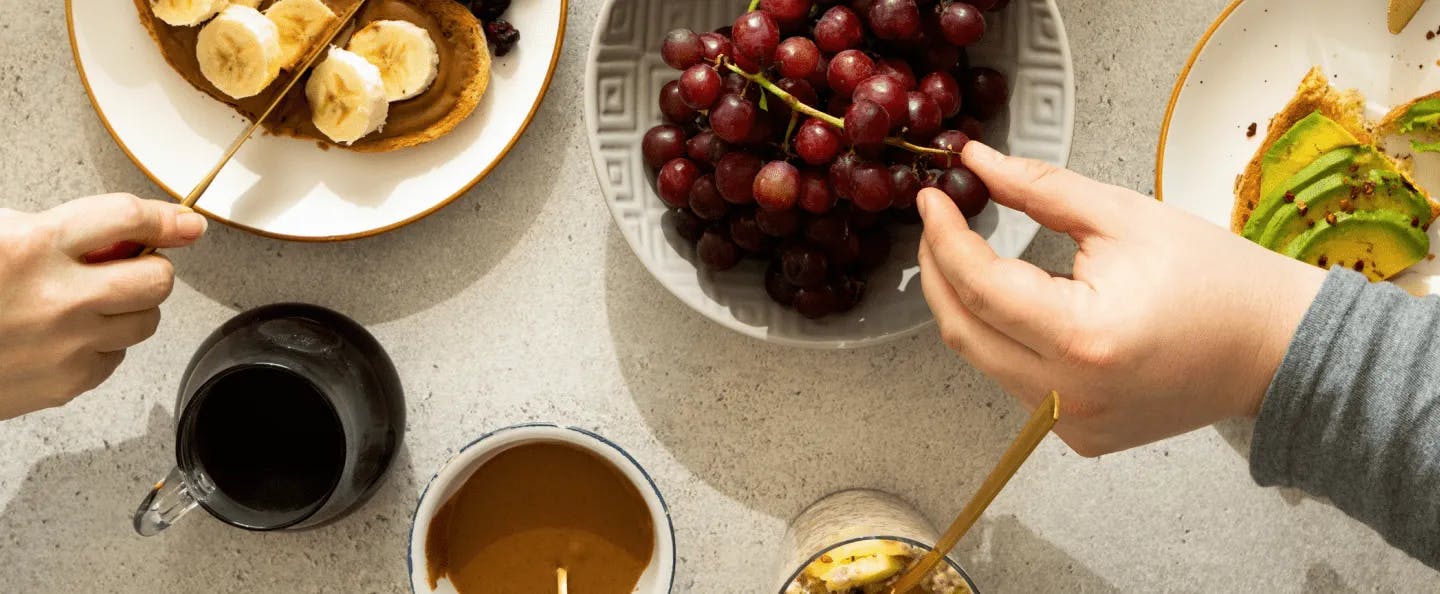How Online Dating Can Lead to Dating Burnout

Online dating is a wonderful, modern way to meet potential romantic interests. Though many people have met casual or long-term partners through online platforms, as with any good thing, there are some downsides, one of them being dating burnout.
Research shows that nearly four out of five adults between the ages of 18 and 54 experience some level of dating burnout or emotional fatigue. We’re here to unpack this statistic by sharing some of the indicators of dating burnout and why they might happen with online dating.
You’re Experiencing Cognitive Overload
With a plethora of profiles to choose from, dating apps greatly increase the pool of potential matches. Having more options seems promising (and at its core, it is), but this can lead to an endless feeling of “the grass is greener,” meaning that it’s harder to make a choice because you know there are more people out there who could potentially be your person.
Having so many people to choose from might be hopeful and exciting at first, but it can quickly turn into cognitive overload as you continuously scroll through profiles and virtual conversations without coming to a decision.
You’re Experiencing Low Self-Esteem
If you’ve been feeling down and out, engaging in negative self-talk, or just not feeling your best, that’s part of dating burnout. In fact, one of the psychological effects of online dating can be low self-esteem due to a couple of things, one of which being the often superficial nature of the swiping and scrolling process.
A study done in 2016 found that both men and women who used the dating app Tinder had lower levels of satisfaction with their bodies and faces. The study found that people who were actively involved with Tinder monitored their bodies more and internalized societal expectations of beauty at a greater level. What’s more, a 2019 study shows that those who used dating apps (not mentioning specific ones) had a greater chance of developing an eating disorder than individuals who didn’t use them.
Of course, unrealistic standards of beauty in any culture can weigh down on individuals and prompt them to view certain traits in a negative light — online dating doesn’t cause this phenomenon. But the way that many dating apps work, where users’ initial choices are often dependent on looks, can lead many people to feel disposable, less satisfied with their bodies, and less confident in how they present themselves.
You’re Afraid of More Rejection
Another contributing factor to dating burnout is an inflated sense of rejection from dating apps. Dating apps and online platforms can set users up for experiencing what feels like a much higher level of rejection than normal. After all, the more people you encounter, the more chances you’ll have to be selected — and rejected.
For example, when someone goes out to a bar with friends, they might have the opportunity to approach or be approached by two or three people. With digital interactions, however, they can connect with 5, 10, or 20 people in one sitting. When scores of messages go unanswered or you don’t match with as many people as you expected, feelings of rejection can surface but in much greater numbers than in-person interactions.
The rise of online dating has also increased the instances of being ghosted. These are some of the negative effects of online dating that can lead to generalized feelings of hurt and rejection — and these feelings are a recipe for a lack of motivation in dating.
You Feel Lonely
One of the ironic things about dating apps and mental health is that, though you’re interacting with a lot of people, online dating can leave you feeling quite lonely. Two issues are at play here: a focus on the digital sphere and a lack of meaningful connections.
Being in digital spaces is the fabric of this generation. It’s convenient, connective, and broadens people’s perspectives, and so much more. But dating online often leads to feelings of isolation, especially when in-person meetups aren’t frequent. You can be stuck in a loop of swiping, scrolling, and texting, and when you come out of that fog, you might be left with an empty feeling.
With online dating, there can also be a lack of meaningful connections. These spaces are great for meeting people, but oftentimes dating app users are talking to multiple people at once, leaving less room (and time) for personal interactions.
All of this can lead to dating burnout, where the connections you have online are simply unsatisfying.
You’re Just Plain Tired
It’s no secret that online dating can be tiring. From the hours spent each week sifting through profiles to even more hours dedicated to planning dates and meeting people in person, it makes sense that dating fatigue is real. Plus, even when you’re not active on the apps, you’re probably still thinking about them, wondering if you’re missing your chance at love because you’re not logged in. This requires a lot of mental, physical, and emotional energy, all of which is draining.
How to Prevent Burnout During Online Dating
Just because you’re experiencing dating burnout now doesn’t mean that you’ll continue to in the future. There are ways to prevent burnout and counteract some of the negative psychological effects of online dating:
- Set goals: Remembering your goals and deal-breakers will help to limit the number of people you interact with, giving you less option overload. Whether you’re looking for a long-term partner or want to dip your toes into hookup culture, keeping your dating goals at the forefront will help you start dating with intention.
- Learn how to cope with rejection: When such a large part of dating fatigue stems from being rejected and fearing rejection, it’s crucial to know how to process and move on from it rather than internalize and fear it. Learn how to deal with rejection in healthy ways.
- Allow yourself to take a break: Yes, it’s okay to press pause on online dating! Take this time to refresh and recuperate. Then, you’ll be able to reenter the dating world happy and single rather than continue dating with low self-esteem.
- Keep doing the things you love: Participate in hobbies, pursue your interests, meet friends at the gym or for drinks after work. The best way to boost confidence and stay happy is to love yourself and do things that bring you joy and meaningful connection.
Another way to prevent dating burnout is to try a matchmaking service like Tawkify. Working with a professional matchmaker trims the time and effort it takes to meet people and can give you a better chance at finding like-minded people who fit your goals and preferences. Matchmakers carefully select matches that have been vetted, researched, and approved by humans, not algorithms. So if you’re looking for an alternative to dating apps, find your person with Tawkify.

